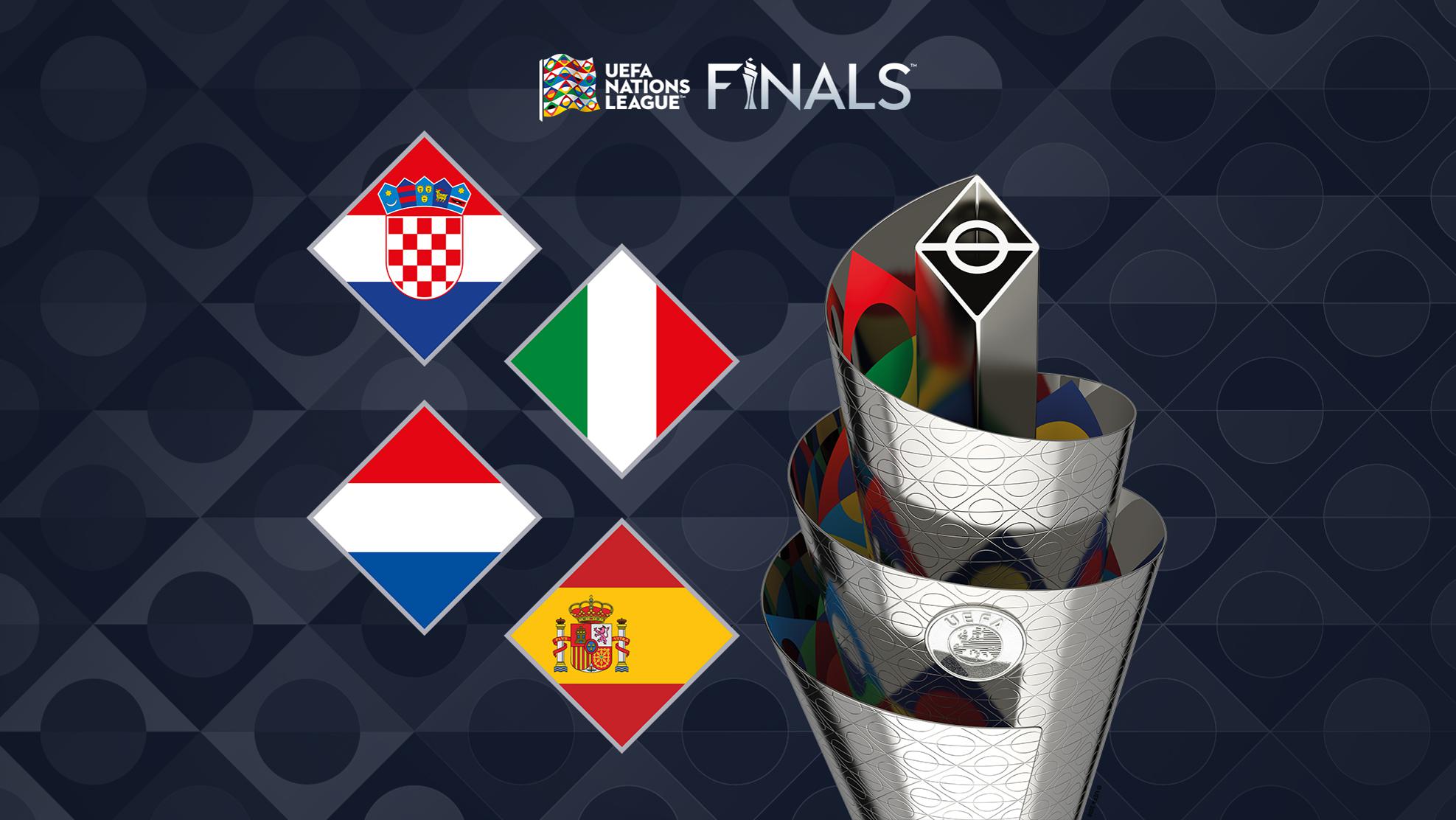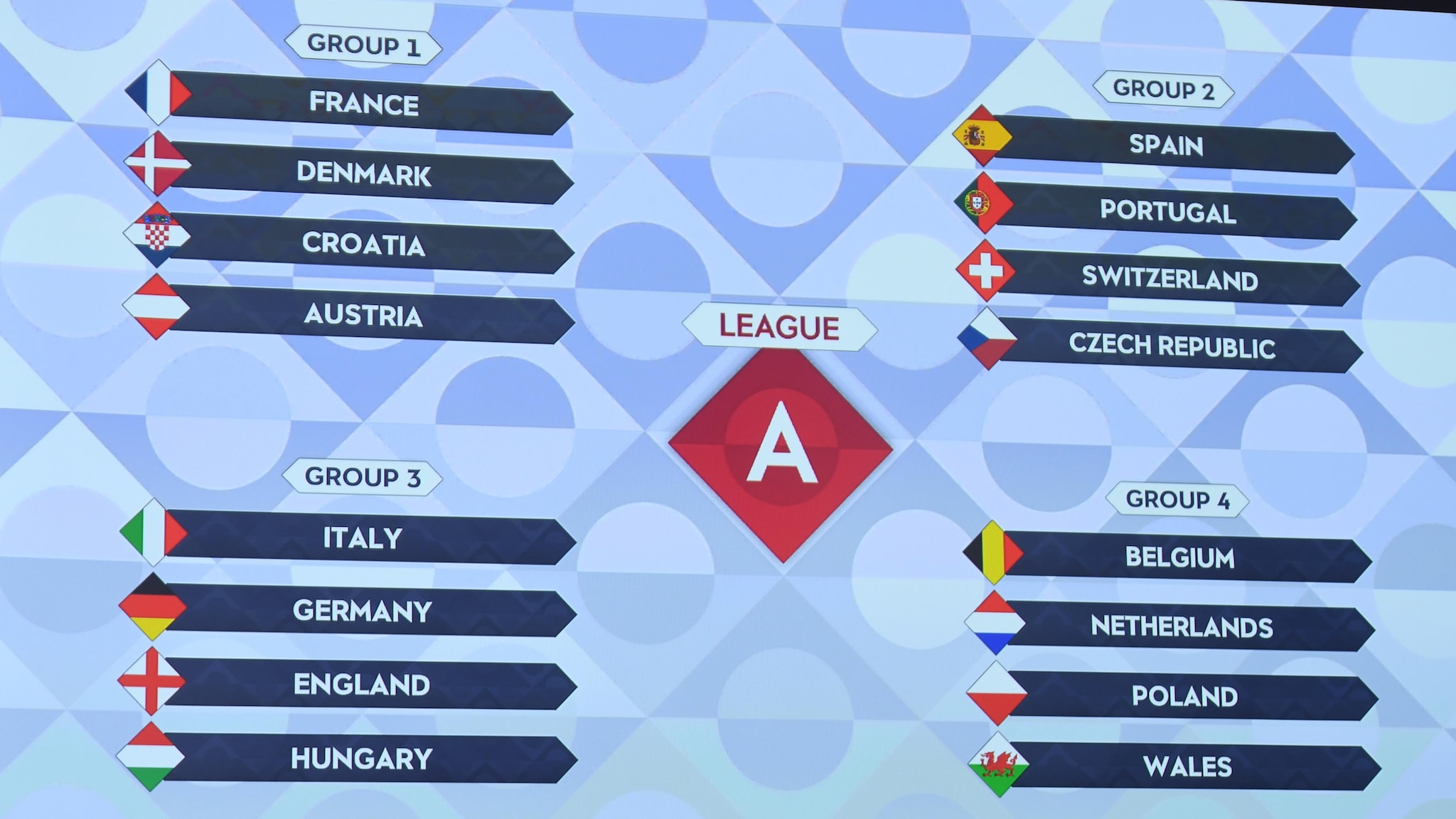UEFA Nations League Overview

The UEFA Nations League is a biennial international association football competition contested by the senior men’s national teams of the 55 member associations of UEFA.
The UEFA Nations League, a thrilling tournament that pits European nations against each other, is now in full swing. As the competition heats up, soccer enthusiasts are eagerly anticipating the upcoming Euro 2024 tournament, which will see 24 teams compete for the coveted trophy.
To stay up-to-date on the latest news and developments, be sure to check out the euro 2024 bracket. As the Nations League continues to captivate audiences, the excitement for Euro 2024 continues to build.
The competition was created to replace international friendlies and to provide more competitive matches for national teams of all levels. It is structured into four divisions, with teams promoted and relegated between divisions based on their performance. The top-tier division, League A, features the strongest teams in Europe and offers a pathway to the UEFA European Championship.
The UEFA Nations League is a competition that brings together the best national teams in Europe. The tournament is played in a league format, with teams divided into different divisions based on their ranking. One of the standout players in the Nations League has been Mateo Retegui, the Argentine striker who plays for Club Atlético Tigre.
Retegui has scored several goals for Argentina in the Nations League, and he has helped his team to qualify for the finals of the tournament. The Nations League is a great opportunity for Retegui to showcase his talent on a global stage, and he will be hoping to continue his good form in the finals.
History
The UEFA Nations League was established in 2018 and replaced international friendlies. The first edition of the tournament was held in 2018-19 and was won by Portugal.
Format
The UEFA Nations League is played over two years, with a group stage followed by a knockout stage for the top teams in each division. The group stage is played in a round-robin format, with teams playing each other home and away. The top teams in each group are promoted to the higher division, while the bottom teams are relegated to the lower division.
The knockout stage is played in a single-elimination format, with the top teams from each division competing for the UEFA Nations League title.
Tiers and Groups
The UEFA Nations League is divided into four divisions, with League A being the top division and League D being the bottom division. The teams are divided into groups based on their UEFA coefficient ranking.
League A consists of 16 teams, divided into four groups of four teams. League B consists of 16 teams, divided into four groups of four teams. League C consists of 16 teams, divided into four groups of four teams. League D consists of seven teams, divided into two groups of three teams and one group of four teams.
Team Performances and Standings: Nations League

The UEFA Nations League has provided a competitive platform for European nations to showcase their skills and measure their progress against top-tier opposition. Teams have exhibited varying levels of performance, with some emerging as frontrunners while others have faced challenges. Analyzing these performances offers valuable insights into the strengths and weaknesses of different nations.
Team Rankings and Standings
The UEFA Nations League is divided into four divisions, with teams ranked based on their performance in previous competitions and friendly matches. The top-ranked teams compete in League A, followed by League B, League C, and League D. Within each league, teams are further divided into groups based on their rankings.
The standings in each group are determined by the number of points earned by teams. Teams receive three points for a win, one point for a draw, and zero points for a loss. The top-ranked team in each group advances to the next higher division, while the bottom-ranked team is relegated to the next lower division.
- League A: Spain, France, Italy, Germany, England, Netherlands, Portugal, Croatia
- League B: Ukraine, Switzerland, Czech Republic, Austria, Wales, Poland, Israel, Romania
- League C: Hungary, Greece, Serbia, Turkey, Slovakia, Scotland, Ireland, Armenia
- League D: Georgia, Bulgaria, Macedonia, Kazakhstan, Belarus, Estonia, Slovenia, Malta
Impact on International Football
/origin-imgresizer.eurosport.com/2023/06/18/3729557-75881068-2560-1440.jpg)
The UEFA Nations League has significantly altered the landscape of international football. It has introduced a competitive and structured format that has positively influenced team preparation, player development, and fan engagement.
The Nations League has provided teams with regular and meaningful matches, allowing them to test their abilities against diverse opponents. This has led to improved team cohesion and tactical awareness. The competition has also created a platform for emerging players to showcase their talent and earn recognition at the international level.
Player Development, Nations league
The Nations League has played a crucial role in player development. The competitive nature of the tournament has forced players to adapt to different playing styles and tactical approaches. This has accelerated their growth and made them more versatile and adaptable.
- Regular matches against top-ranked teams have challenged players and forced them to raise their performance levels.
- Exposure to different formations and tactics has broadened their understanding of the game and made them more effective in their club environments.
- The opportunity to represent their countries has provided young players with invaluable experience and confidence.
Fan Engagement
The Nations League has captured the imagination of football fans worldwide. The competitive matches and the chance to see their national teams compete regularly have increased fan engagement and created a sense of excitement around international football.
- The tournament has attracted large crowds to stadiums and generated significant television audiences.
- The use of social media and online platforms has allowed fans to connect with their teams and share their passion for the game.
- The Nations League has created a sense of community among fans, uniting them behind their national teams.
Nations League, the international football competition, has witnessed some thrilling matches. One such encounter was the clash between Croatia and Italy, where Croatia emerged victorious with a resounding 4-0 scoreline. Read more about this exciting match here. The Nations League continues to captivate football enthusiasts with its high-stakes matches and competitive spirit.
Nations League has proven to be an exciting tournament, showcasing the best of international football. As we look ahead to the upcoming euro 2024 bracket , it’s clear that the nations involved have gained valuable experience from the Nations League.
This experience will undoubtedly benefit them in their pursuit of European glory in Germany.
The UEFA Nations League is an international football competition contested by the senior men’s national teams of the 55 member associations of UEFA. It was first played in 2018–19, replacing international friendly matches. Dutch referee Danny Makkelie has officiated several matches in the Nations League, including the 2021–22 final between Spain and France.
The Nations League has quickly become a popular competition, with fans enjoying the competitive matches and the chance to see their national teams play against some of the best teams in Europe.